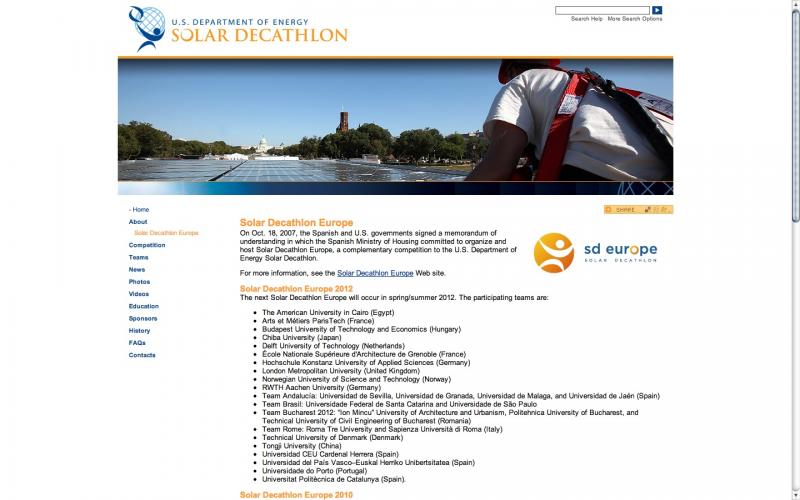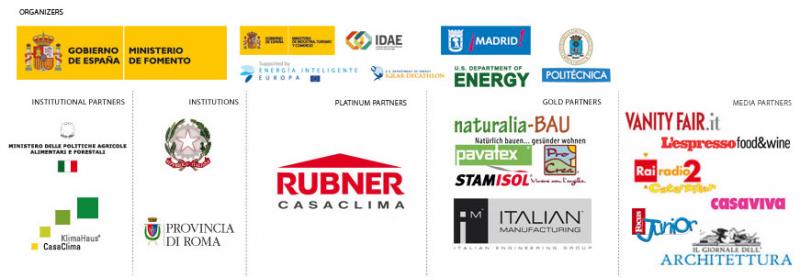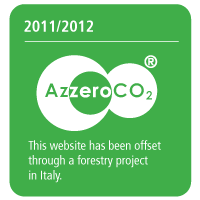 |
 |
 |
||
       |
||||
Solar Decathlon - Solar Decathlon Europe - 13 Jan 2011
Published by Francesco Cusani on Dom, 20/02/2011 - 14:11
Solar Decathlon - Solar Decathlon Europe - 13 Jan 2011
On Oct. 18, 2007, the Spanish and U.S. governments signed a memorandum of understanding in which the Spanish Ministry of Housing committed to organize and host Solar Decathlon Europe, a complementary competition to the U.S. Department of Energy Solar Decathlon.
For more information, see the Solar Decathlon Europe Web site.
Solar Decathlon Europe 2012
The next Solar Decathlon Europe will occur in spring/summer 2012. The participating teams are:
- The American University in Cairo (Egypt)
- Arts et Métiers ParisTech (France)
- Budapest University of Technology and Economics (Hungary)
- Chiba University (Japan)
- Delft University of Technology (Netherlands)
- École Nationale Supérieure d'Architecture de Grenoble (France)
- Hochschule Konstanz University of Applied Sciences (Germany)
- London Metropolitan University (United Kingdom)
- Norwegian University of Science and Technology (Norway)
- RWTH Aachen University (Germany)
- Team Andalucía: Universidad de Sevilla, Universidad de Granada, Universidad de Malaga, and Universidad de Jaén (Spain)
- Team Brasil: Universidade Federal de Santa Catarina and Universidade de São Paulo
- Team Bucharest 2012: “Ion Mincu” University of Architecture and Urbanism, Politehnica University of Bucharest, and Technical University of Civil Engineering of Bucharest (Romania)
- Team Rome: Roma Tre University and Sapienza Università di Roma (Italy)
- Technical University of Denmark (Denmark)
- Tongji University (China)
- Universidad CEU Cardenal Herrera (Spain)
- Universidad del País Vasco–Euskal Herriko Unibertsitatea (Spain)
- Universidade do Porto (Portugal)
- Universitat Politècnica de Catalunya (Spain).
Solar Decathlon Europe 2010
Modeled after the U.S. Department of Energy Solar Decathlon in Washington, D.C., the first Solar Decathlon Europe took place in Madrid, Spain, in June 2010. The decathletes spent 10 days competing in the Villa Solar near the Royal Palace (Palacia Real) of historic Madrid. A combination of task completion, measurement, and jury scoring determined Solar Decathlon Europe's first champion: Virginia Tech.
Solar Decathlon Europe 2010 Results
Seventeen teams from nine countries competed in Solar Decathlon Europe 2010. The final standings were:
|
Rank |
Team |
Point Total |
|
1 |
Virginia Polytechnic Institute & State University |
812 |
|
2 |
University of Applied Sciences Rosenheim |
811 |
|
3 |
Stuttgart University of Applied Sciences |
808 |
|
4 |
Ecole National Supérieure d'architecture de Grenoble |
794 |
|
5 |
Helsinki University of Technology |
777 |
|
6 |
Bergische Universität Wuppertal |
773 |
|
7 |
Arts et Métiers Paris Tech |
763 |
|
8 |
University of Florida |
743 |
|
9 |
Universidad CEU Cardenal Herrera |
737 |
|
10 |
Fachhochschule fur Technik und Wirtschaft Berlin |
729 |
|
11 |
Tongji |
683 |
|
12 |
Universidad de Sevilla |
678 |
|
13 |
Universidad Politécnica de Cataluña |
668 |
|
14 |
Universidad de Valladolid |
648 |
|
15 |
University of Nottingham |
641 |
|
16 |
Tianjin University |
585 |
|
17 |
Instituto de Arquitectura Avanzada de Cataluña |
583 |
Solar Decathlon Europe 2010 Contests
Solar Decathlon Europe 2010 consisted of the 10 contests detailed below:
|
Contest |
Description |
|
Architecture |
Assessed architectural design quality, coherence, flexibility of space, use of bioclimatic strategies, and seamless integration. |
|
Construction and Engineering |
Evaluated the implementation of engineering and construction design principles with special attention to functionality, performance efficiency, safety, reliability, and technical soundness. |
|
Solar Systems and Hot Water |
Evaluated the functionality, efficiency, robustness, and economic value of the solar and hot water systems. |
|
Energy Balance |
Evaluated the degree of electric energy self-sufficiency and effective use of solar energy. |
|
Comfort Conditions |
Assessed the capacity to provide a comfortable interior through control of temperature, humidity, acoustics, and lighting as well as the quality of interior air. |
|
Usage |
Evaluated functionality as well as the efficiency of appliances by simulating the normal daily use of a contemporary house. |
|
Communication and Social Media |
Assessed communication and public awareness about the possibilities and benefits of solar energy, energy efficiency, sustainable construction, and other topics relevant to Solar Decathlon Europe. |
|
Industrialization and Market Viability |
Evaluated market viability, industrialization, and grouping possibilities. |
|
Innovation |
Evaluated the incremental, emergent, or revolutionary changes in the house design, its systems, and its components that increase the house value or improve its performance. |
|
Sustainability |
Evaluated the skill and environmental sensibility of the teams to design and construct a house with little environmental impact during its life cycle. |

http://www.solardecathlon.gov/sd_europe.html







